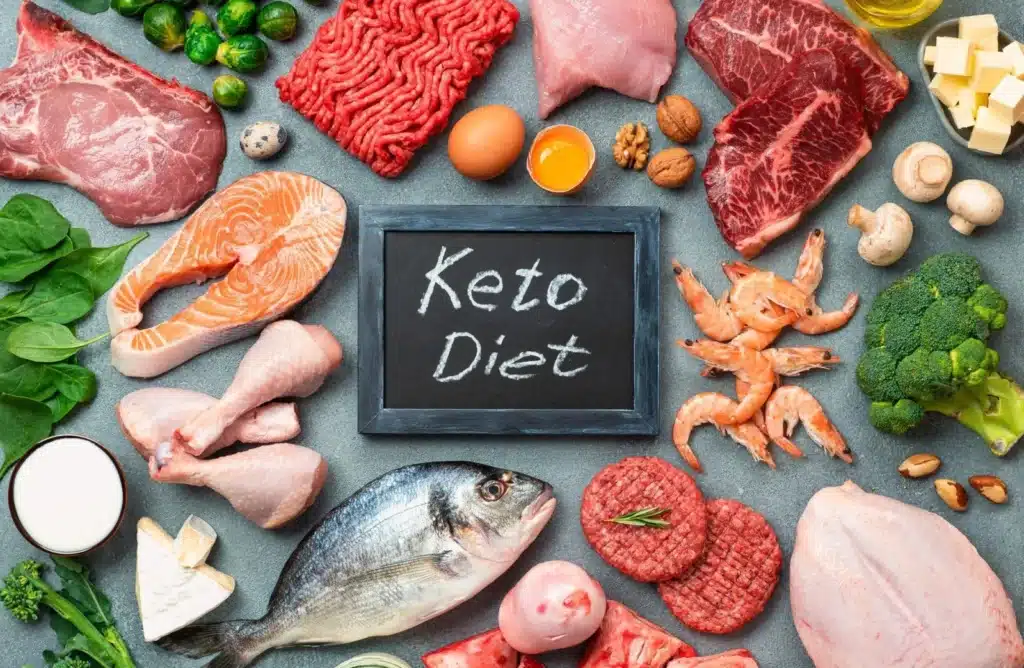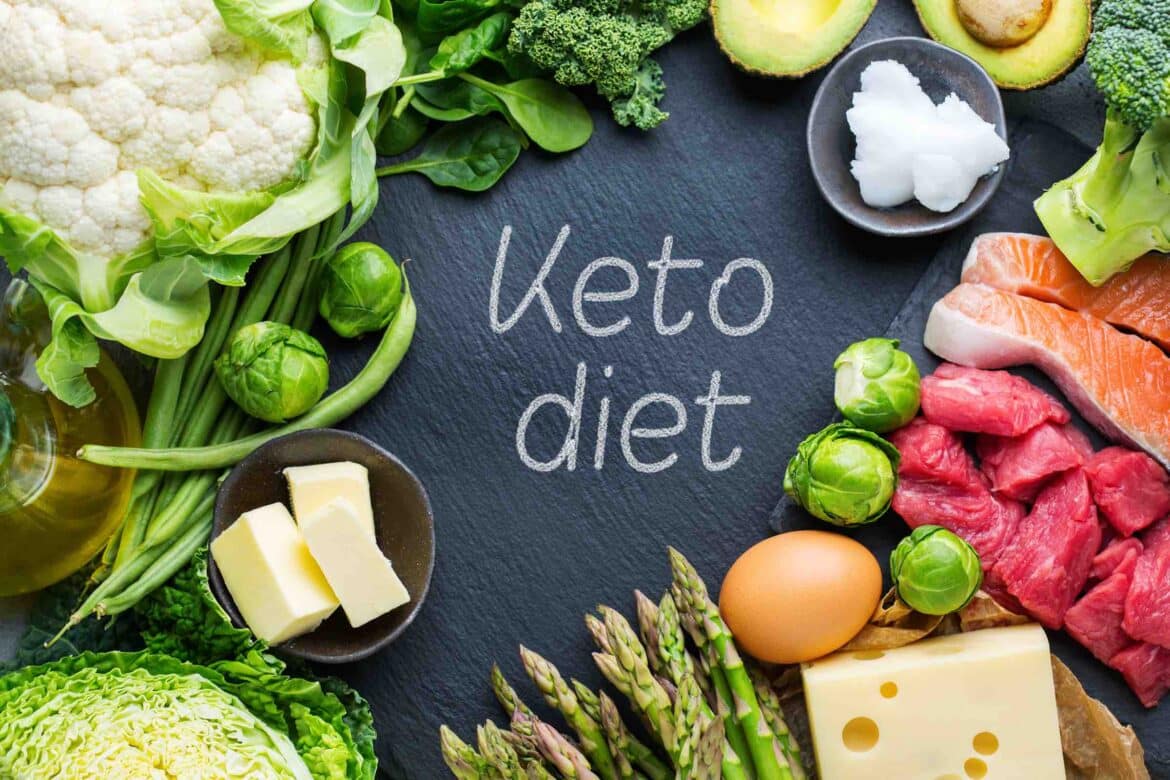Introduction
Is Keto Diet Good For Uric Acid: The ketogenic diet, or keto diet, has gained significant popularity in recent years for its potential weight loss benefits and ability to improve certain health conditions. However, there are concerns about the impact of this high-fat, low-carbohydrate diet on uric acid levels in the body. Uric acid is a waste product that is produced when the body breaks down purines, which are found in certain foods and beverages.
Uric acid is normally dissolved in the blood and excreted through the kidneys. However, high levels of uric acid can lead to a condition called hyperuricemia, which can cause painful symptoms such as gout. Gout is a form of arthritis that occurs when uric acid crystals accumulate in the joints, leading to inflammation and severe pain.
Some studies suggest that the carnivore diet may increase uric acid levels in the body. This is because the diet is high in purine-rich foods such as red meat, organ meats, and seafood. These foods are broken down into uric acid during digestion, which can contribute to higher levels of uric acid in the blood.
However, other research suggests that the keto diet may actually have a positive effect on uric acid levels. A study published in the journal Nutrients found that participants following a keto diet experienced a decrease in uric acid levels after 12 weeks. The researchers hypothesized that this may be due to the weight loss and improved insulin sensitivity associated with the diet.

Can I do keto if I have high uric acid?
Yes, you can do the keto diet even if you have high uric acid levels. The keto diet is a low-carb, high-fat diet that has been shown to be effective for weight loss and improving overall health. It involves reducing your intake of carbohydrates and increasing your intake of fats, which puts your body into a state of ketosis. This metabolic state allows your body to burn fat for fuel instead of carbohydrates.
High uric acid levels, also known as hyperuricemia, can lead to a condition called gout. Gout is a form of arthritis that causes painful inflammation in the joints, typically in the big toe. It is caused by the buildup of uric acid crystals in the joints. While certain foods can trigger gout attacks, such as those high in purines, the keto diet is not specifically associated with an increased risk of gout.
However, it is important to note that the keto diet can potentially affect uric acid levels in some individuals. When you follow a keto diet, your body produces ketones, which are byproducts of fat metabolism. These ketones can increase the acidity of your blood, which can potentially lead to an increase in uric acid levels. This is why it is important to monitor your uric acid levels if you have a history of gout or high uric acid.
If you have high uric acid levels and are considering the keto diet, it is recommended to consult with a healthcare professional or a registered dietitian. They can provide personalized guidance and help you determine if the keto diet is suitable for you. They may also recommend certain modifications to the diet to help minimize the risk of gout attacks or elevated uric acid levels.
While the keto diet can potentially affect uric acid levels, it is still possible to follow the diet if you have high uric acid. However, it is important to monitor your uric acid levels and consult with a healthcare professional to ensure that the diet is safe and appropriate for your individual needs.
What is the best diet for high uric acid?
Eat more fruits, vegetables and whole grains, which provide complex carbohydrates. Avoid foods and beverages with high-fructose corn syrup, and limit consumption of naturally sweet fruit juices. Water. Stay well-hydrated by drinking water.
When it comes to managing high uric acid levels, following a healthy diet is crucial. A diet that is low in purines can help reduce the production of uric acid in the body and prevent the formation of urate crystals. These crystals are responsible for causing gout, a painful form of arthritis. Therefore, it is important to choose the right foods to include in your diet if you have high uric acid levels.
One of the best diets for high uric acid is a low-purine diet. Purines are natural substances found in certain foods and are broken down into uric acid in the body. By limiting your intake of purine-rich foods, you can effectively lower your uric acid levels. Foods that are high in purines include organ meats, shellfish, red meat, and certain types of fish like anchovies and sardines. It is advisable to avoid or limit the consumption of these foods.
In addition to a low-purine diet, it is important to stay hydrated. Drinking plenty of water helps flush out excess uric acid from the body and prevents the formation of urate crystals. Aim to drink at least 8 glasses of water per day to maintain proper hydration and promote uric acid excretion.
Another important aspect of a diet for high uric acid is the inclusion of foods that are known to lower uric acid levels. These include foods rich in vitamin C, such as citrus fruits, strawberries, and bell peppers. Vitamin C helps in the excretion of uric acid from the body. Additionally, consuming foods that are high in fiber, such as whole grains, fruits, and vegetables, can help lower uric acid levels.
It is also recommended to limit the consumption of alcohol and sugary beverages. Alcohol, especially beer, can increase uric acid levels in the body. Sugary beverages, on the other hand, can contribute to weight gain, which is associated with higher uric acid levels. Therefore, it is best to avoid or minimize the intake of these beverages.
Do carbs increase uric acid?
Eating foods lower on the glycemic index scale can lower uric acid concentrations and could be more effective in preventing gout flares than reducing one’s overall carbohydrate intake – which can actually increase uric acid concentrations, a study shows.
Carbohydrates are an essential macronutrient that provides the body with energy. They are found in a variety of foods such as grains, fruits, vegetables, and dairy products. However, there has been some debate about whether consuming carbohydrates can increase uric acid levels in the body.
Uric acid is a waste product that is produced when the body breaks down purines, which are found in certain foods and drinks. High levels of uric acid can lead to a condition called hyperuricemia, which is associated with gout, a type of arthritis.
Some studies have suggested that consuming a diet high in carbohydrates, particularly refined carbohydrates like white bread and sugary drinks, can increase uric acid levels in the body. This is because these types of carbohydrates can lead to weight gain and insulin resistance, both of which are risk factors for hyperuricemia.
However, other studies have found no significant association between carbohydrate intake and uric acid levels. These studies suggest that it is not the carbohydrates themselves that increase uric acid, but rather the overall diet and lifestyle factors that are associated with high carbohydrate intake.
For example, a diet high in refined carbohydrates is often low in other important nutrients like fiber, vitamins, and minerals. This can lead to poor overall health and an increased risk of chronic diseases like heart disease and diabetes, which are also associated with higher uric acid levels.
It is important to note that everyone’s body is different, and what works for one person may not work for another. If you are concerned about your uric acid levels, it is best to consult with a healthcare professional who can provide personalized advice based on your individual needs and medical history.
Does keto help with joint pain?
Joint pain is a common condition that affects millions of people worldwide. It can be caused by various factors such as injury, inflammation, or underlying medical conditions. Many individuals who suffer from joint pain are constantly seeking ways to alleviate their symptoms and improve their quality of life. One popular dietary approach that has gained attention in recent years is the ketogenic diet, or keto for short.
The ketogenic diet is a low-carbohydrate, high-fat diet that has been shown to have numerous health benefits. It is primarily used for weight loss, but it has also been found to have positive effects on other aspects of health, including joint pain. The main principle behind the keto diet is to switch the body’s primary source of fuel from carbohydrates to fats. By doing so, the body enters a state of ketosis, where it burns fat for energy instead of glucose.
Research has shown that the ketogenic diet can help reduce inflammation in the body, which is a common cause of joint pain. When the body is in a state of ketosis, it produces ketones, which have anti-inflammatory properties. These ketones can help reduce the production of inflammatory molecules in the body, thereby alleviating joint pain.
In addition to reducing inflammation, the keto diet can also help with joint pain by promoting weight loss. Excess weight puts additional stress on the joints, leading to increased pain and discomfort. By following a low-carb, high-fat diet like keto, individuals can effectively lose weight and reduce the burden on their joints.
Furthermore, the ketogenic diet has been found to improve overall joint health. The diet is rich in healthy fats, such as omega-3 fatty acids, which have been shown to have a positive impact on joint health. These fats help lubricate the joints and reduce inflammation, leading to improved joint function and reduced pain.
Why do my kidneys hurt on keto?
Low-carb and ketogenic diets have become very popular for weight loss. But the high amounts of fat with proteins and fewer carbohydrates can not only increase the risk of high cholesterol but put pressure on the kidneys.
The ketogenic diet, or keto diet, has gained significant popularity in recent years for its potential weight loss benefits and ability to improve certain health conditions. However, there are concerns about the impact of this high-fat, low-carbohydrate diet on uric acid levels in the body. Uric acid is a waste product that is produced when the body breaks down purines, which are found in certain foods and beverages.
Uric acid is normally dissolved in the blood and excreted through the kidneys. However, high levels of uric acid can lead to a condition called hyperuricemia, which can cause painful symptoms such as gout. Gout is a form of arthritis that occurs when uric acid crystals accumulate in the joints, leading to inflammation and severe pain.
Some studies suggest that the keto diet may increase uric acid levels in the body. This is because the diet is high in purine-rich foods such as red meat, organ meats, and seafood. These foods are broken down into uric acid during digestion, which can contribute to higher levels of uric acid in the blood.
However, other research suggests that the keto diet may actually have a positive effect on uric acid levels. A study published in the journal Nutrients found that participants following a keto diet experienced a decrease in uric acid levels after 12 weeks. The researchers hypothesized that this may be due to the weight loss and improved insulin sensitivity associated with the diet.
The keto diet is a high-fat, low-carbohydrate diet that has gained popularity for its potential weight loss benefits. However, there is a growing concern about its impact on uric acid levels. Uric acid is a waste product that is produced when the body breaks down purines, which are found in certain foods. High levels of uric acid can lead to a condition called gout, which is characterized by painful joint inflammation.
Research suggests that the keto diet may increase uric acid levels in some individuals. This is because the diet is high in purine-rich foods such as red meat, organ meats, and shellfish. These foods can contribute to the production of uric acid in the body. Additionally, the keto diet can cause dehydration, which can further increase uric acid levels.
What is the relationship between the keto diet and uric acid levels?
The keto diet is a high-fat, low-carbohydrate diet that has gained popularity for its potential benefits in weight loss and improving certain health conditions. When following a keto diet, the body enters a state of ketosis, where it primarily burns fat for fuel instead of carbohydrates. This metabolic shift can lead to changes in various biochemical processes in the body, including uric acid levels.
Research suggests that the keto diet may have an impact on uric acid levels. Some studies have shown that following a keto diet can lead to an increase in uric acid levels, which may be attributed to the breakdown of purines in the body. Purines are compounds found in certain foods and are metabolized into uric acid. Therefore, consuming a high amount of purine-rich foods while on a keto diet may further elevate uric acid levels.
Are there any potential risks or side effects of the keto diet on uric acid levels?
The keto diet, which is high in fat and low in carbohydrates, has been shown to have potential risks and side effects on uric acid levels. One of the main concerns is that the keto diet can lead to an increase in uric acid production. When the body is in a state of ketosis, it breaks down fat for energy and produces ketones. This process also increases the production of uric acid, which can lead to higher levels in the blood.
High levels of uric acid can be problematic as it can crystallize and form deposits in joints, leading to a painful condition known as gout. Therefore, individuals who already have high uric acid levels or a history of gout may want to exercise caution when considering the keto diet. It is important to consult with a healthcare professional before starting any new diet, especially if you have pre-existing medical conditions.
Are there any specific foods or nutrients in the keto diet that may affect uric acid levels?
Yes, there are certain foods and nutrients in the keto diet that may affect uric acid levels. The keto diet is a high-fat, low-carbohydrate diet that typically includes foods such as meat, fish, eggs, dairy products, nuts, and seeds. These foods are high in purines, which are substances that are broken down into uric acid in the body. Therefore, consuming a lot of purine-rich foods on the keto diet can lead to an increase in uric acid levels.
Additionally, the keto diet is often low in carbohydrates, which can also affect uric acid levels. When the body is in a state of ketosis, it produces ketones as an alternative source of energy. This process can lead to an increase in uric acid production and a decrease in uric acid excretion, which can result in higher uric acid levels.
What are some alternative dietary approaches for managing uric acid levels, if the keto diet is not recommended?
If the keto diet is not recommended for managing uric acid levels, there are several alternative dietary approaches that can be considered. One such approach is the Mediterranean diet, which emphasizes consuming fruits, vegetables, whole grains, lean proteins, and healthy fats. This diet has been shown to have anti-inflammatory effects and may help reduce uric acid levels.
Another alternative is the DASH (Dietary Approaches to Stop Hypertension) diet, which focuses on consuming fruits, vegetables, whole grains, lean proteins, and low-fat dairy products. This diet is low in purines, which are substances that can increase uric acid levels. By following the DASH diet, individuals may be able to manage their uric acid levels effectively.
Additionally, increasing water intake and staying hydrated is crucial for managing uric acid levels. Drinking plenty of water helps dilute uric acid and promotes its excretion through urine. Avoiding sugary drinks and alcohol, which can increase uric acid levels, is also important.

Conclusion
The keto diet can have both positive and negative effects on uric acid levels in the body. On one hand, the diet promotes weight loss and reduces insulin levels, which can help lower uric acid levels and prevent gout attacks. Additionally, the keto diet encourages the consumption of healthy fats and limits the intake of purine-rich foods, which can also contribute to lower uric acid levels.
However, it is important to note that the keto diet is high in protein, which can increase uric acid production and potentially lead to higher levels in the body. This is especially true if the diet includes a lot of purine-rich foods such as organ meats and shellfish. Therefore, individuals with a history of gout or high uric acid levels should proceed with caution when considering the keto diet.
Furthermore, it is crucial to maintain a balanced and varied diet to ensure overall health and well-being. While the keto diet may have benefits for some individuals, it is not suitable for everyone. It is always recommended to consult with a healthcare professional or registered dietitian before making any significant changes to your diet, especially if you have pre-existing health conditions.
In summary, the keto diet can have both positive and negative effects on uric acid levels. It may help lower uric acid levels through weight loss and reduced insulin levels, as well as the avoidance of purine-rich foods. However, the high protein content of the diet can potentially increase uric acid production. Therefore, it is important to consider individual health factors and consult with a healthcare professional before starting the keto diet or making any drastic dietary changes.


2 comments
… [Trackback]
[…] Here you will find 87114 additional Info on that Topic: thefitnessblogger.com/is-keto-diet-good-for-uric-acid/ […]
… [Trackback]
[…] Information on that Topic: thefitnessblogger.com/is-keto-diet-good-for-uric-acid/ […]